Well. The scanning is all done, or as much as I intend to do. Herewith the final installments of my Beijing posts.
―:☺:―
A Lengthy Reminiscence: Part Three
I have a lot of memories about the Beijing Beijing
The city's climate is harsh, characterized by hot, humid summers due to the East Asian monsoon, and cold, windy, dry winters that reflect the influence of the vast Siberian anticyclone. Average temperatures in January are at around -7 to -4 °C, while average temperatures in July are at 25 to 26 °C. Annual precipitation is over 600 mm, with 75% of that in summer.
Minus 7 Celsius is 20 degrees Fahrenheit. And keep in mind, those are averages. We were at least that cold the whole time I was there, if not colder. I’m not stupid…I knew it would be cold. Both The Second Mrs. Pennington (ed: "PK" in the photo titles) and I brought clothes appropriate for the weather, as we anticipated we’d be doing more than a bit of outdoor sightseeing. I assumed the Ministry of Rails (MOR) offices would be comfortable (read that: heated) but I was wrong. But I’m getting ahead of myself.
To pick up the tale…
I scheduled our trip so TSMP and I would have one full day to adjust and work off the jet lag after arriving in Beijing Beijing
 Our first full day in
Our first full day in TSMP and I spent our first day hanging around Tiananmen Square and environs. The square is huge, reputedly the largest open air square in the world. I believe it. We spent the entire day there, doing things like watching the changing of the guard at Mao’s tomb, walking along the moat of the Imperial Palace, scoping out the Peoples Architecture, and wandering around the shopping areas adjacent to the square. We were struck by how friendly the people were and by the large numbers of men in uniform…seemingly every third male we saw was in a uniform of one sort or another. English signage, as may be expected, was in short supply. This wasn’t as big a problem as you might think, because TSMP discovered in very short order that she could read Chinese ideograms quite easily and that those ideograms were roughly equivalent in meaning to the same or similar Japanese kanji. We were also equipped with a copy of Fodor’s Beijing
The day was punctuated with quite a few encounters with English-speaking Chinese and every single one of our encounters was pleasant and very friendly. With one exception. TSMP attempted to strike up a conversation with a very young, very tall (well over six feet) PLA soldier during the changing of the guard ceremony at Mao’s tomb. He simply glared at her the whole time, acknowledging her presence but refusing her attempts to talk to him. I was decidedly uncomfortable during the whole exchange, which only lasted a couple of minutes. But, hey…that’s her and that’s her style. She’s a button-pusher from the word Go.
 We returned to the hotel in the late afternoon, took a nap, and then went downstairs for dinner. I noticed the type of restaurants have changed at the Shangri-La over the last 15 years. We had dinner our first full night at the Shangri-La in a wonderful French restaurant that’s no longer there. And the cuisine was remarkable, what with a resident French chef overseeing the whole affair. The food was every bit as good as that served in any restaurant in
We returned to the hotel in the late afternoon, took a nap, and then went downstairs for dinner. I noticed the type of restaurants have changed at the Shangri-La over the last 15 years. We had dinner our first full night at the Shangri-La in a wonderful French restaurant that’s no longer there. And the cuisine was remarkable, what with a resident French chef overseeing the whole affair. The food was every bit as good as that served in any restaurant in  I had been given a contact number to call upon my arrival in
I had been given a contact number to call upon my arrival in Ten minutes or so later we arrived. The MOR’s offices were in a low, two-story concrete block building surrounded by a high masonry wall with a steel sliding gate, attended by an armed guard. The offices appeared to be in a residential neighborhood and had no identifying signs (or anything else) to indicate what the building might be. The interpreter, a young man by the name of Mr. Wen, explained that the offices were MOR’s engineering facility. We went into the building, walked down a long, dimly-lit corridor, up a staircase to the second floor, down another corridor, and into a medium-sized conference room, where there were about five people waiting. We made our introductions, passed out business cards, and I made the ceremonial gift presentations (small boxes of Godiva chocolates), part of the ritual of doing business in China
At Work
It was then I noticed that everyone in the room was dressed in parkas and were wearing those fingerless gloves one sees here and there. And that it was cold, very cold, in the room. When I say “cold,” I mean it was 40 degrees F inside, while the outside temperature was in the 20s. You could almost, but not quite, see your breath as you breathed in and out. I had taken off my overcoat when I arrived and it wasn’t too very long before I put it back on, to many smiles around the table. That morning was the first and last time I went to the office in “appropriate business attire,” to wit: suit and tie. My MOR counterparts were dressed in heavy sweaters and parkas, and although I didn’t bring a parka, I had several sweaters and warm wool casual pants. I dressed accordingly for the remainder of the week. But I was still cold the whole time. I drank a lot of tea over the course of the next week, using my teacup as an impromptu sort of hand warmer.
MOR Staff - Male Engineer, Two Female Engineers, the Chief Engineer and Wen, My Translator
I’ll not go into detail about the business. Suffice to say that my days were spent doing a tedious, but necessary, line-by-line edit of the Request for Proposal. We edited the RFP as a group and my primary interactions were with the previously mentioned mid-30s female engineer, an older male engineer, and our interpreter. We were joined occasionally (at least once a day) by the Chief Engineer, a man in his mid- to late 60s, who was obviously idolized by his subordinates. I’ve never seen another senior manager given such deference and obvious admiration by his or her subordinates, ever. I’m sure there’s some sort of back-story there but I never learned what it was. At any rate, I’d arrive at the MOR offices every day just after 0900, work until 1230 or so, return to the hotel for a two-hour lunch break, go back to the office and work until 1800 or so. Nights were spent incorporating the day’s edits into the master document, which I had on my laptop. Rinse, repeat…until we were done.
Wen and Me in Tiananmen Square
Wen (“Please. Just call me Wen, not Mister Wen”) and I developed a close and friendly relationship over the course of the week, primarily because there was not much of a language barrier and also due to the fact that we spent a lot of time together. Wen would arrive at the hotel by bicycle every morning about a half-hour before the car. I discovered this the second day when I saw him waiting outside the hotel in the cold. He refused to come into the hotel even after much pleading and persuading on the part of TSMP and myself. But we finally convinced him to join us inside, and on the third day we talked him into having breakfast with us in the hotel restaurant. That may or may not have been a smart move, as Wen was mildly embarrassed because he had never used a knife and fork before. We solved that situation by asking the waiter for chopsticks which were delivered with a mild look of disapproval on the part of the waiter. Wen explained to us that “ordinary” Chinese were heavily discouraged from mixing with foreigners and were generally prohibited from entering the western hotels except on business. We convinced him that it was indeed business when he joined us in the hotel and he finally but reluctantly agreed. TSMP and I would pick up quite a few tidbits of information like that from Wen as he became more comfortable with us.
We learned that Wen was from a small village in the south of China Beijing
My, but I do go on, eh? There’s a lot to say about this trip, but I don’t want to write the Not-So-Great American Novel while doing so. One more installment and I think I’m done. More tomorrow.
―:☺:―
A Lengthy Reminiscence: Part Four (and Final)
TSMP in the Forbidden City. She did touristy stuff while I froze my ass off at work.
More Forbidden City
Still More Forbidden City
The tale continues…earlier installments are just below. (ed: still sorta true - see below for Parts One and Two)
After about five days of work, we (the client and I) finished editing the RFP, producing a final document which was ready to be put “on the street” for prospective bidders. One of the final activities was to wrap up some administrative details which necessitated a visit to the Chinese government contracting authority who handled the business end of the deal. The contracting authority was an entity separate and apart from the Ministry of Rails and was responsible for oversight of the project. The purpose of my visit with these guys was to verify that the consulting contract had been completed to the MOR’s satisfaction; all items on the Statement of Work, including the deliverables (the RFP), were done; and EDS could submit our bill for services rendered. I delivered a written statement from MOR saying the work had been completed to their satisfaction and from my point of view that should have been the end of it. But first I had to complete an interview with a contracting officer.
The contracting officer was a middle-aged bilingual bureaucrat who spoke excellent English and my visit with him was anything but pleasant. I suppose the guy had to justify his existence, because I was subjected to a half-hour’s worth of what could only be called an interrogation…in the worst sense of the word. While I wasn’t waterboarded or anything, it was close.
A clerk or some sort of minor functionary ushered me into a small bare office where the interview took place. The office was furnished only with a desk, two metal chairs, and was lit by a single naked light bulb hanging from the ceiling. The office resembled the set of a bad spy movie, which is one of the reasons I characterize this interview as an interrogation.
A clerk or some sort of minor functionary ushered me into a small bare office where the interview took place. The office was furnished only with a desk, two metal chairs, and was lit by a single naked light bulb hanging from the ceiling. The office resembled the set of a bad spy movie, which is one of the reasons I characterize this interview as an interrogation.
As I entered the room the officer, sitting behind the desk, pointed to a chair in front of the desk and instructed me to “sit.” He gave me his name, took a few minutes to read the MOR documents and then began to pepper me with rapid-fire questions about the nature of the work, why it took so many hours to complete, who were my principal counterparts at MOR, did they express any dissatisfaction with my work or the deliverables, were there any loose ends, did I give MOR my very best efforts and so on. The officer asked many of the questions over and over, some were repeated several times. He abruptly concluded the interview by handing me some documents and dismissing me, literally, with a “Very well. You may go.”
And that was it. He didn’t rise from behind the desk and there was no parting handshake. Just a curt “You may go.” I walked out of the office, and the building, more than a little angry. This encounter had been completely different than the sum total of my other experiences the past week, and I was mildly shocked. Maybe the guy was having a bad day or maybe this was just the way they did business. Whatever the reason, it wasn’t pleasant, as I said. But it was over.
And that was it. He didn’t rise from behind the desk and there was no parting handshake. Just a curt “You may go.” I walked out of the office, and the building, more than a little angry. This encounter had been completely different than the sum total of my other experiences the past week, and I was mildly shocked. Maybe the guy was having a bad day or maybe this was just the way they did business. Whatever the reason, it wasn’t pleasant, as I said. But it was over.
I returned to MOR’s offices and gave them their copies of the documents given to me by the contracting officer. I was then led to the same conference room where the week’s activities had begun, and was surprised to see all my project counterparts... the Chief Engineer, Wen, and several other people gathered there. What followed were several speeches (in Chinese) by the Chief Engineer and the junior engineers, many smiles, thank-yous, and handshakes all around. I, in turn, made a brief speech thanking them for their hospitality, cooperation, and hard work. All very formal!
The Chief Engineer presented with me with a parting gift, followed by a brief period of informal socializing with tea and sweet cakes. The Chief Engineer asked (through Wen) when I was leaving Beijing
PLA Soldiers on the Wall
Wen, car, and driver arrived at the Shangri-La early the following morning and we were off to the Great Wall which was about an hour’s drive outside of the city. Once again, it was cold. Bone chilling cold, and if that Lada had any heat, it only got to the occupants of the front seat. TSMP and I shivered in the back. We arrived at the Great Wall and spent about two hours there, clambering all around, taking lots of photos, and just generally having a marvelous time. TSMP and I were impressed with the scale and scope of the Wall, its skillful restoration, and the sheer numbers of people that were there. There were literally thousands of people; the crowds were amazing. The majority of the people were Chinese, including quite a few PLA soldiers and officers. There were also many tourists of every conceivable nationality. The people-watching opportunities were unlimited and fascinating.
 Wen gave us a running commentary of the history of the Wall all throughout our visit and included lots of trivia, including the fact that I was now a “real man.” Say what? Wen explained there’s an old Chinese proverb that says a man isn’t truly a man until he’s stood upon the Great Wall. Well, Allll-RIGHT!!! I’m a man, spelled M-A-N… da, da, da-DAH! (Apologies to Muddy Waters.) (pic: Wen and TSMP on the Wall)
Wen gave us a running commentary of the history of the Wall all throughout our visit and included lots of trivia, including the fact that I was now a “real man.” Say what? Wen explained there’s an old Chinese proverb that says a man isn’t truly a man until he’s stood upon the Great Wall. Well, Allll-RIGHT!!! I’m a man, spelled M-A-N… da, da, da-DAH! (Apologies to Muddy Waters.) (pic: Wen and TSMP on the Wall)We had lunch and did some shopping at an artists’ mall (for lack of a better word), where we picked up a beautiful large watercolor painting of blooming cherry blossoms done in the classic Chinese motif. As an aside of no purpose whatsoever, that painting was one of the few items TSMP decided to keep when we ended.
 And then it was on to the Ming Tombs (there are great photos and external links at this reference), which weren’t nearly as interesting (to me) as the Great Wall. Whereas the Great Wall was over-run with tourists we were virtually alone at the Ming Tombs, a fact I found rather strange. The architecture was great as was the extensive collection of statuary, but the cold was really beginning to get to me by the time we arrived at the Tombs. And, as I mentioned previously, the lack of heat in the car meant that warming up was a virtual impossibility. (pic: At the Ming Tombs)
And then it was on to the Ming Tombs (there are great photos and external links at this reference), which weren’t nearly as interesting (to me) as the Great Wall. Whereas the Great Wall was over-run with tourists we were virtually alone at the Ming Tombs, a fact I found rather strange. The architecture was great as was the extensive collection of statuary, but the cold was really beginning to get to me by the time we arrived at the Tombs. And, as I mentioned previously, the lack of heat in the car meant that warming up was a virtual impossibility. (pic: At the Ming Tombs)We capped off the day with a tremendous meal in a roadside restaurant on the way back into the city. The meal and the restaurant seemed pre-arranged. Our driver pulled right into the restaurant’s “parking lot” with no prompting from anyone and we all got out of the car and went inside. An unusual aspect of this experience is the restaurant’s proprietors wouldn’t let us eat in the main dining room; we were ushered upstairs to a small room where the four of us ate alone. I though that rather odd. But that’s a small point. The meal, as I said, was tremendous. The four of us shared what had to be 15 main course dishes, all delicious, and all served up with great flair.  There was meat, chicken, a huge baked fish (bass, I think), and numerous vegetables, some spicy hot, and some not. Each dish was deposited on one of those large lazy-susans one finds in Chinese restaurants all over the world, and we ate Chinese style. That meal was the best meal I had while in
There was meat, chicken, a huge baked fish (bass, I think), and numerous vegetables, some spicy hot, and some not. Each dish was deposited on one of those large lazy-susans one finds in Chinese restaurants all over the world, and we ate Chinese style. That meal was the best meal I had while in China
 There was meat, chicken, a huge baked fish (bass, I think), and numerous vegetables, some spicy hot, and some not. Each dish was deposited on one of those large lazy-susans one finds in Chinese restaurants all over the world, and we ate Chinese style. That meal was the best meal I had while in
There was meat, chicken, a huge baked fish (bass, I think), and numerous vegetables, some spicy hot, and some not. Each dish was deposited on one of those large lazy-susans one finds in Chinese restaurants all over the world, and we ate Chinese style. That meal was the best meal I had while in We got back to the hotel in the early evening. TSMP, Wen, and I got out of the car and said our good-byes. Wen blushed, very visibly, when TSMP ignored his outstretched hand and gave him a hug and a big kiss on his cheek instead. The good-byes were quite poignant as TSMP and I had become quite attached to Wen during the week. And it all went by SO fast…
And so we left for Tokyo Tokyo Beijing
Bedtime in Japan - at one of TSMP's host family's house
Why I love Japan - Beer Machines!
TSMP and her best friend Junko
We spent a week in Tokyo Tokyo Tokyo Sofia University
Some final observations I was unable to work into the foregoing narrative(s)…
Besides being dark and cold, Beijing
Each city I’ve ever visited outside the US has a characteristic and unique…uh…aroma. Beijing
 The elevators at the Shangri-La had carpets inside with the day of the week lavishly embroidered on them, i.e., “Monday,” “Tuesday,” etc.. TSMP and I never figured out when, or how, the carpets were changed. We made a game of trying to catch the staff changing out the carpets, hanging out in and around the elevators at
The elevators at the Shangri-La had carpets inside with the day of the week lavishly embroidered on them, i.e., “Monday,” “Tuesday,” etc.. TSMP and I never figured out when, or how, the carpets were changed. We made a game of trying to catch the staff changing out the carpets, hanging out in and around the elevators at While I'm on about the hotel, I have to mention the servers in the Lobby Lounge, who were all beautiful, tall young women dressed in qipaos... the silky, clingy, traditional female Chinese dress. The one with the slits up the side…all the way to mid-thigh. And the servers were quite friendly, too, bordering on flirtatious. I got several hard looks from TSMP on account of that fact. Well, that and my trying-not-to-be-obvious leering.
We thought our driver was a member of the Chinese KGB (or equivalent thereof). We always had the same driver, he never said a word, and he was always observing us in his rear-view mirror. We were sure he spoke English, even though Wen said he didn’t. TSMP and I devised several “tests” that convinced us the guy did indeed understand English. That aspect of the trip was kinda strange, yet fun and interesting.
And finally…I replaced that dishrag, the one that started this series of incredibly long posts with an English tea towel. That tea towel was, up until now, used for the sole purpose of drying my glasses after I wash them. And I’ve had it nearly as long as the dishrag it replaced. Don’t get me started on how I came to acquire that rag. Or where. ‘Tis a whole nuther story, as they say…














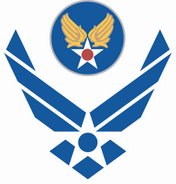

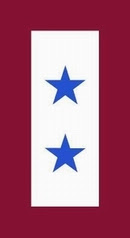
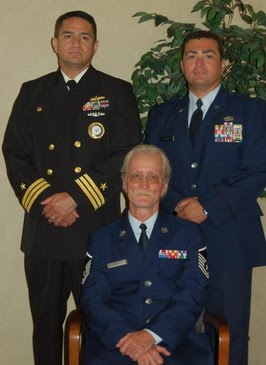.jpg)
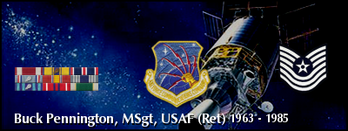

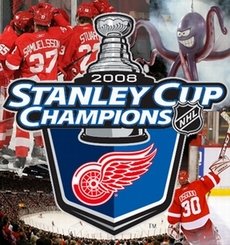

Wonderful story. I think I have been infecting your corner of the web with the urge to tell sea-stories of far away places and better times. Keep the stories coming, we all need them!
ReplyDeleteThere are good times ahead, if we can just get our ships out of comfortable harbors. Ships belong at sea. (To paraphrase a famous quote)
I need a pint of London Pride... only an hour to go.
Buck - I never read these before. What an incredible story - I confess I teared up a bit when you had to say good-bye to Wen. I would have done the same thing TSMP did - hugged him.
ReplyDeleteBeautiful pics too. I was suprised at the way the air looks - which in and of itself is so strange, that you actuall "see" the air. Terrible for respiratory health for sure.
I wonder how much it's changed since then, especially the interrogations about doing business there.
That was simply wonderful.
ReplyDeleteI agree with Kris that I teared up when you said goodbye to Wen. I hope nothing but the best for these people. I expect you were ushered away in the restaurant to avoid anyone fraternising with foreigners. But how lovely they wanted you to experience the best they could offer then.
I wonder if now that Google have stopped being assholes, he could actually look up your name on the net and discover this story? That would be amazing.
Amazing to speak Japanese. How did you find the futon? ;) I used to have one and um, it wasn't great!
I would love to visit these parts of the world.
Thanks again for the wonderfully written story.
I better head out. Cheers by the way - it's beer o'clock here. I always toast you here in Soho!
Darryl sez: Ships belong at sea. (To paraphrase a famous quote)
ReplyDeleteAh... but that presupposes said ships are seaworthy, don't it? I seem to have sprung a leak or two in the near past...
Kris sez: I was suprised at the way the air looks - which in and of itself is so strange, that you actually "see" the air. Terrible for respiratory health for sure.
The thought of what the air was doing to us... health-wise... was never far from our minds. But we figured it was only a week and we could (and did) survive.
Alison sez: I wonder if now that Google have stopped being assholes, he could actually look up your name on the net and discover this story? That would be amazing.
One can hope. That said, TSMP wrote Wen twice after we got home and there was no reply. We both wondered if he ever got her ltters... it seemed so out of character for him to NOT reply.
re: the futon. TSMP and I slept on futons for the entire time we were in Tokyo (two years... during our courtship) and for several years thereafter at various points in time. I love futons... there aren't many better beds out there.
And I raised my glass to you too, Alison, in our just-concluded Happy Hour.
I agree with you Buck - futons are fantastic. I have one in my Sanctuary Room and it's almost more comfortable than our regular bed.
ReplyDeleteYou two had a curious interest in the inner-workings of the hotel business. I bet they took the elevator own to the laundry floor, swapped carpets, and presto, the elevator was back on the way to customers. What could have been entertaining, was to take a picture of your KGB driver, and put it and $10 US in an envelope under the carpet. Yea, I'm thinking you should do this on the day you leave...
ReplyDelete...in an envelope under the carpet.
ReplyDeleteCarpet? What carpet? Just bare metal floorboards, with holes in 'em. ;-)
About those rugs: we were mesmerized at the timing, which was precise... military-precise. And there were four elevators, too, if memory serves. No doubt you're right about how the staff actually did the change-out, tho.
Not to be a downer or anything - but my uncle was killed in Shanghai in 1936. I've always had a desire to go see if the military graves are still there. He was a French conscript, and I guess there was an uprising of sorts. They probably buried japanese soldiers on top of him (hee). Such a rich history of foreign intervention. I sure hope they get after their polution problem! I think I'll go watch the Sand Pebbles tonight... Sun's almost over the yard-arm, get your can openers out.
ReplyDeleteIt's a sign of old age, but I keep forgetting what I was going to type. Anyway, I just wanted to say that it seems like every girl in Japan is named Junko. I'm told it means Obediant Child. Do you think they name their kids like they hope they will be?
ReplyDeleteHenri: Sorry about your uncle, but as you say China has a long and terrible history of foreign intervention. I also don't think much improvement has been made on the pollution front, if one believes what one reads.
ReplyDeletere: Junko. That name and Yukiko, LOL! You're probably right about parental naming conventions/habits, as well.
It was not much later that day when I bought the plum blossom painting, which now hangs over my stove in the kitchen.
ReplyDeleteI'm pretty sure... VERY danged sure... we bought that painting at the Great Wall, Paula. Isn't memory a strange thing? I also remember you telling me about the taxi ride and that scared the bejeezus out of me, too... even in retrospect.